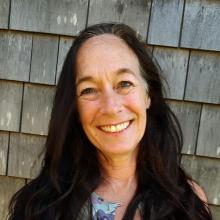Oil companies are moving fast with efforts to expand operations in the Northwest. They're putting our communities at risk from explosive oil train derailments, huge increases in rail traffic, and spills from trains, tankers, and barges. And with each additional project, they add to the problem of carbon pollution and climate disruption.
Dangerous types of oil – volatile Bakken crude from the Midwest and toxic tar sands oil from Canada – pose unique dangers to public health and the environment. Unchecked, the oil industry will turn our region into a thoroughfare for crude oil with terminal proposals that impact the Northwest, the country and the world.
This is not the future we want! Make your voice heard today as we stand up to Big Oil.
Right now, we have an opportunity to say no to the oil industry’s proposed expansion through our region; but we need your voice.
A public comment period is now underway to evaluate the risks of two of the terminals in Grays Harbor, Washington – the Westway and Imperium terminal proposals. Our job is to let the Department of Ecology and the City of Hoquiam know that we understand the risks we face with these oil industry proposals – and that we don’t think they’re worth it.
Big oil wants to make Grays Harbor a crowded hub for dangerous crude oil.
Whether you live one hundred or five miles away from Grays Harbor, the cumulative impacts of these projects, especially the rail transportation of explosive crude oil, threatens the livelihoods of all Washingtonians.
The time is now to speak up against proposed crude oil export terminals in Grays Harbor.
The risks we face are not theoretical. We remember the Lac-Mégantic oil train disaster in Quebec —a derailment and explosion that killed 47 people on July 5, 2013. We also remember the devastation of the Exxon Valdez oil spill in Alaska. And the ominous warning of the 1989 Nestucca oil barge spill off Grays Harbor that fouled beaches from Oregon to Vancouver Island, and killed 56,000 sea birds.
Make a statement today and don’t let Big Oil put our communities at risk.





